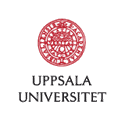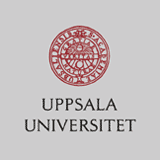Kursinformation finns inte tillgänglig på svenska, visar engelsk kursinformation.
Writing and Reviewing in Medical Research and Life Science Engineering, 1,5 (3) hp
| Kursnummer | 48 |
| År | 2021 |
| Typ | Subjectcourse |
| Spår | Inflammation, |
| Max antal deltagare | 50 |
| Sista ansökningsdag | 2021-12-31 |
| Språk | En |
| Kursansvarig | Jens Schuster |
| Institution | Dept Immunology, Genetics and Pathology |
| Besöksadress | BMC B11:422B |
| Postadress | Box 815, 751 08 Uppsala |
| Datum | continuous |
| Lokal | online |
| Kurslängd | 1-3* 1,5h sessions per term/parallel assignments |
| Kursrapport | |
| Kursplan |
Beskrivning
Learning outcomes of the course:
The aim of the course is to provide students with:
•hands-on practice in manuscript writing
•hands-on practice in manuscript reviewing
•familiarize students with the journal submission process.
The course is designed as a practical complement to other scientific writing courses offered by the faculty. The students will get a wider perspective on life science engineering and medical research in general as they contribute with their different experiences and approaches from their own research work.
Inlärningsmål
A1. Demonstrate broad knowledge and systematic understanding of the research field as well as advanced and up-to-date specialised knowledge in a limited area of this field.
• The course brings together students with different backgrounds and expertise, and students will benefit from broadening their perspectives on research by reading and commenting on research from related research fields.
A2. Demonstrate familiarity with research methodology in general and the methods of the specific field of research in particular.
• The students will read about different methods in the field of life science engineering and thereby increase their knowledge on research methodology in general. In particular, the students will practise critical assessment the relevance of used methods by reviewing their peers’ manuscripts.
B1. Demonstrate the capacity for scholarly analysis and synthesis as well as to review and assess new and complex phenomena, issues and situations autonomously and critically.
• By reviewing their peer’ articles, students will learn índependent and critical assessment of other people’s work. This will be beneficial for the students when planning and conducting their own research projects.
B4. Demonstrate the ability in both national and international contexts to present and discuss research and research findings authoritatively in speech and writing and in dialogue with the academic community and society in general.
• The course will be a preparation for handling real reviewing processes after graduation. The students will learn how to phrase their comments using professional language with high scientific quality.
• By reading the peers’ manuscripts and improving their own manuscripts the students will get practice in how to present their results in a comprehensive manner and fulfilling the standards set by the academic community.
B5. Demonstrate the ability to identify the need for further knowledge.
• During the course, the students will review articles about for them unfamiliar topics and methods. For the students to be able to judge on the scientific quality of these papers, they will have to practise their ability in identifying the need for new knowledge and how to obtain and analyse new information.
B6. Demonstrate the capacity to contribute to social development and support the learning of others both through research and education and in some other qualified professional capacity.
• By learning how to criticise fellow researchers’ work in a constructive manner participants will contribute to the learning process of others.
Innehåll
The course covers the following aspects of writing and reviewing a manuscript: (i) general paper structure, (ii) journal submission process, (iii) peer review process, (iv) journal selection criteria, (v) writing a cover letter, (vi) general structure of scientific review, (vii) writing a rebuttal letter to reviewers comments with high scientific quality and professionalism.
Undervisning
During the course you will submit your own written manuscript(s) and review your peers' manuscripts. A list of participants will be generated, and the course responsibles will assign two reviewers per submitted article. Reviewers will be chosen on the basis of i) their estimated graduation date, ii) vicinity of subject area, iii) number of papers already reviewed.
If you receive an article for review, you will have 2 weeks to read the article thoroughly and write your comments. All types of comments are encouraged, mainly scientific ones of course, but suggestions on paper structure and language edits are also welcome. You can refer to the checklist provided, and submit at least 3 constructive comments/questions per reviewed paper. The comments should be formatted in the same way you would do as in a real journal review. The submitting author should reply to these comments in an equally professional manner, within the same time frame, i.e. after an additional 2 weeks. Anyone not keeping to the deadlines will have to re-submit a paper (if submitting author)/review another paper (if reviewing) to get the credits, since any delays may affect other people’s submission times or timeliness in getting a course certificate. Please note that if you do not respond at all to review requests, you will be excluded from the course after one warning (you can of course decline to review if it is not suitable at the time, but you need to answer the e-mails).
An introductory lecture and discussion sessions will be offered with information to supplement the scientific writing courses, including how to write a cover letter, reviewer comments and response to reviewer’s comments.
At least 3 times per year a discussion session will be arranged. Here, different topics will be discussed, such as generally difficult parts of scientific writing and examples of difficult reviewer’s questions to answer to.
Examination
Requirements for 1.5 credits (hp):
- attend the introductory lecture
- attend and participate in at least 2 discussion sessions
- submit 1 of your own articles for review (and respond to reviewers comments)
- review 2 articles of your peers
- respond within the timeline (2 weeks)
Requirements for 3 credits (hp):
- attend the introductory lecture
- attend and participate in at least 3 discussion sessions
- submit 2 of your own articles for review (and respond to reviewers comments)
- review 4 articles of your peers
- respond within the timeline (2 weeks)
Lärare
Hannah Pohlit, PhD.
Division of Microsystems Technology
Department of Materials Science and Engineering
Ångström Laboratory
Uppsala University
Lägerhyddsvägen 1
75121 Uppsala
Jens Schuster, PhD., Docent
Department of Immunology, Genetics and Pathology
Biomedical Centre
Uppsala University
75108 Uppsala
Kontakt
hannah.pohlit@angstrom.uu.se
jens.schuster@igp.uu.se
Please send an email to register!


